In this week’s Princh Library Blog post, guest writer Glory Odochi Okeagu shares her insights of the everyday life of public libraries in Nigeria, discussing their challenges, duties, how the community perceives them, and some examples of initiatives established by Nigerian libraries.
Are you curious what Princh can offer for your library and your patrons? Then check out the Ultimate Guide To Princh For Libraries, to learn about all the benefits our solution offers! You can download our guide here.
I grew up knowing that I love reading, and I was reading for pleasure. I also knew that getting access to a variety of books was impossible at home, so the public library came to the rescue; all we were required to do was to register, and we could enjoy the books. The library visit hours was one of my high points in primary school. I was proud to say that I am going to the public library to study. Maybe all these led me to where I am now – a librarian.
I have also listened to interviews by some of our elites and leaders, where they shared the importance of libraries in education, and reminded us that the public libraries were their go-to for the educational resources they needed while growing up. This makes me wonder about the neglect of some of the state library boards. Why do the “peoples’ university”, and the public libraries receive so little attention from the funding governments (the states)?
At the national level, there is the National Library of Nigeria (NLN) with 34 state branches, including the federal capital territory (FCT) and the state library boards in the 36 states, as well as the FCT education secretariat. For many of the state public libraries, it is a mixed fortune from their funding governments, with the library-friendly Governors adequately funding their libraries. Sadly for others, that is not the case.
Struggles across the country
Over the past many years public libraries in Nigeria have undergone a lot of changes. The major challenges most of the state library boards are facing are funding and infrastructure (physical, technology, human resources). The 774 local government area councils in Nigeria should have a public library in each of them, but that is not the case – some states have just one facility in the state capital, thereby denying many citizens the benefits of the people’s university. The fact that public libraries have, over the years, been poorly funded is glaring in some states.
Many have been operating without a budget with an adverse effect on their collection development and administration. Many have not purchased new information resources in more than a decade, so they are housing outdated resources. This is in addition to the dilapidated, unconducive structures housing some of them. There is no unified salary structure across library boards, some states pay better than others. The poor remuneration, incentives, and irregular salaries for public librarians have made public libraries unattractive for employment and this has led to a drastic shortage of staff. Some of the public state libraries are yet to embrace information and communication technologies (ICT), as a good number of them are mostly dependent on traditional library services (Delta, Bayelsa, FCT, Kwara, Anambra, Rivers, Gombe, Kaduna states have embraced e-libraries, internet). To most Nigerians, public libraries are all about books. Perhaps we begin to accentuate them as community hubs, where members of the communities can access much more than books. Then the narratives might change. The professional development opportunities for state public librarians are low or non-existent in most states.
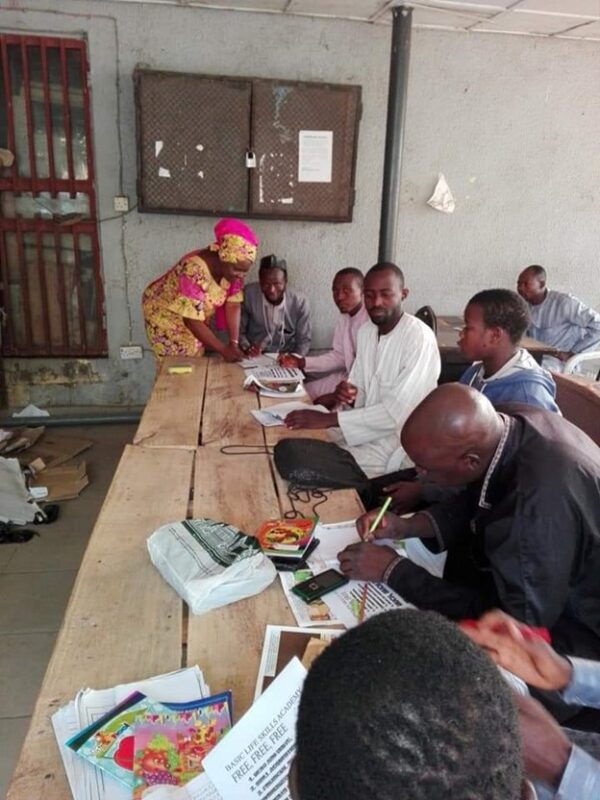
Basic Life Skills Training in the NLN FCT branch
The way forward
There are glimpses of light in the public library sector in Nigeria. It is a given that the public libraries, whether the National or state public libraries, are at the forefront of the campaign to make Nigeria a reading nation, from hospitals to pregnant women, to the inmates in correctional centers, to the motor parks, to the unreached remote villages and through the media. Many public librarians, including those who participated in the African Library & Information Associations and Institutions (AFLIA), African leadership Academy (Aflac), and International Network of Emerging Library Innovators Sub-Saharan Africa (INNELI-SSAF) capacity-building programs are positively engaging their communities. These capacity programs were part of the recently ended global libraries initiative funded by the Bill and Melinda Gates Foundation.
The national library of Nigeria is carrying out a lot of programs both onsite and offsite through its branches. There have been several digital literacy programs for children, youths, teachers, and retirees. There are e-libraries in eighteen of the NLN branches where digital literacy skills training is organised for members of the communities. These were achieved through collaborations and partnerships. An economic empowerment outreach for women at the Gbagyi community in Paze village in Abuja and Enugu were also held by the branches of the National Library of Nigeria. The women were taught beads & pastry making, and house cleaning materials production. Another librarian, also with the National Library of Nigeria Abuja branch, started an adult literacy program for members of the community where they are taught basic life skills.
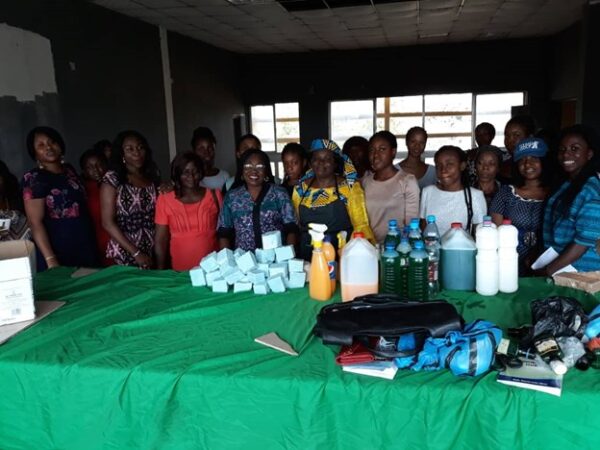
Home Cleaning Products Training For Women in the Enugu branch of the NLN
The City Library of the Abuja FCT education secretariat has a program for street children known as “Almanjiris”. The objective is to get these children off the street and into meaningful existence. Some of them have been enrolled in schools under a scholarship from well-meaning citizens who admired what the library is doing, and others have been involved in skills acquisition. The Delta State Public Library Board carried out a project to help fish farmers improve their fish production. They explored partnerships to execute the project and 32 persons participated in the seminar. The Enugu State Library Board designed programs for young people in skills acquisition. They have a skills acquisition corner in the library where they can learn shoemaking, bindery, etc. Over 30 members of the Enugu community have benefited from this program. Some state governments appreciate the place of libraries as an adjunct to education and have deliberately improved their funding, built e-libraries, and improved their physical structures.
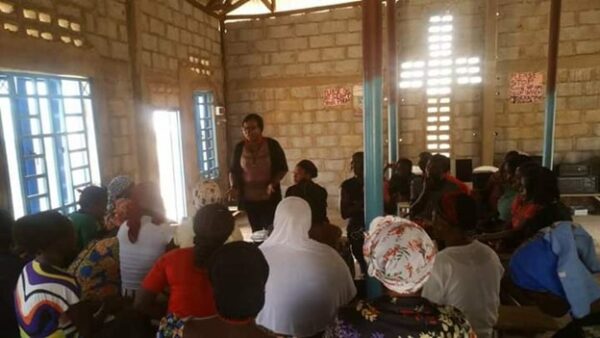
Health Talk With The Women Of Paze in Abuja by the NLN Abuja
To get the public libraries the citizens aspire for, the government and private sector should pay more attention towards libraries’ funding, infrastructure, technologies, and policies.
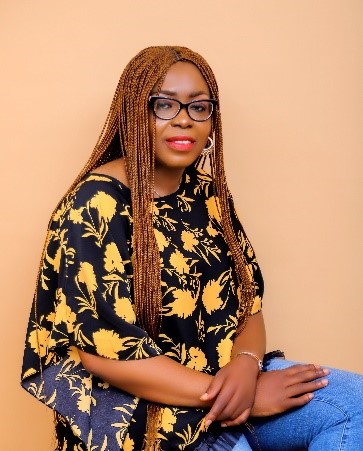
Glory Odochi Okeagu
Glory Odochi Okeagu is on the staff of the National Library of Nigeria, Abuja. She has a Bachelor of Library Studies and Master of Library and Information Studies degrees from Abia State University and the University of Ibadan. She is also an alumnus of AFLIA Leadership Academy, Cohort 2. She enjoys mentoring young librarians and using technology for the innovative dissemination of Information.
Recent posts
Green Libraries: How Sustainable Design is Shaping the Future of Public Libraries
In this week's Princh Library Blog post, recurring guest writer Sam L. Bowman discusses an ever so important topic: sustainable design and [...]
Librarians Supporting Digital Literacy in the Community
In this week's Princh Library Blog, Nina Grant covers why digital literacy is important, the variety of ways in which librarians are supporting [...]

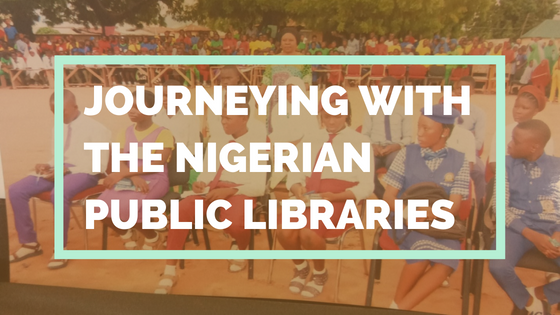
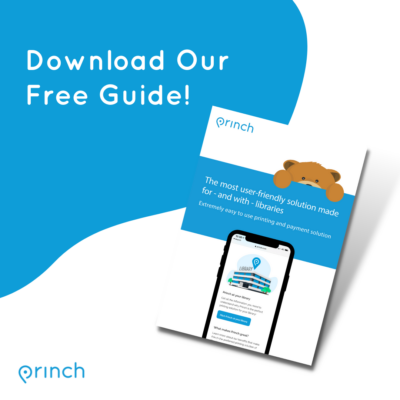
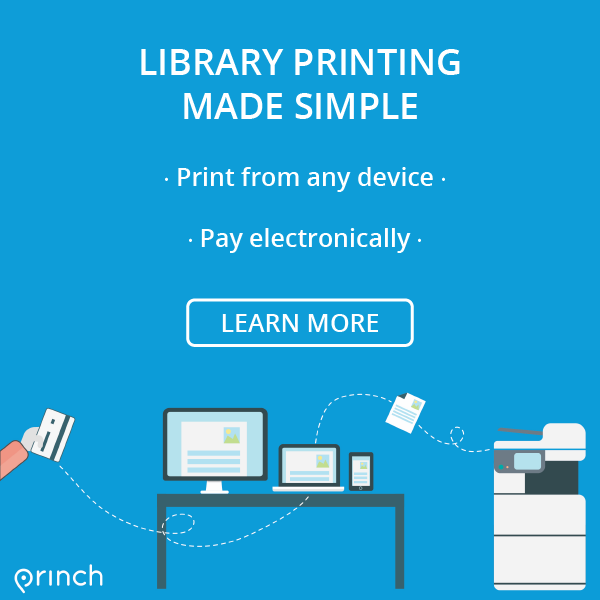

Leave A Comment